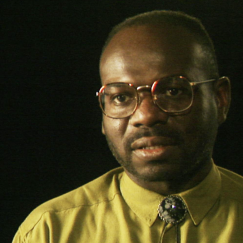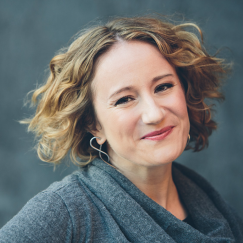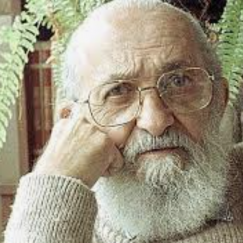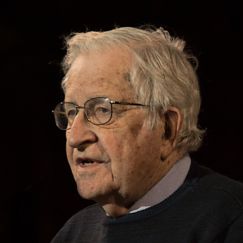All illusions are potential ways of ordering reality. The goal of criticism should therefore be not to destroy illusions but to make us more sensitive to their workings and their complexity.
Bio/Short Description
Len Masterman, an English education professor at the University of Nottingham in England, started his career as a high school English teacher in the 1960s. He first wrote about the serious study of the mass media in schools with his influential 1980 publication, Teaching about Television. His second book, Teaching the Media provided a framework for critically analyzing news and entertainment media.
HOW THEY INFLUENCED YOU?
External Links
Interview with Tessa Jolls: Media Literacy Pioneers Speak
Other Grandparents
 Marlon Posted By: Renee HobbsOn:11/29/2023 - 00:56
Marlon Posted By: Renee HobbsOn:11/29/2023 - 00:56
 danahPosted By: Yonty FriesemOn:01/06/2023 - 07:34
danahPosted By: Yonty FriesemOn:01/06/2023 - 07:34
 PaoloPosted By: Renee HobbsOn:07/22/2021 - 16:11
PaoloPosted By: Renee HobbsOn:07/22/2021 - 16:11
 NoamPosted By: Renee HobbsOn:05/23/2020 - 03:48
NoamPosted By: Renee HobbsOn:05/23/2020 - 03:48
 Jon Posted By: Renee HobbsOn:05/10/2020 - 00:12
Jon Posted By: Renee HobbsOn:05/10/2020 - 00:12



Tessa Jolls
So many fine people have contributed to the media literacy field! We are fortunate to have direct access to many of the founders, but when I decided to contribute to this gallery, there is only one person whom I think stands above all others in seeing and describing what distinguishes media literacy: Len Masterman.
In his own words, during a Voices of Media Literacy Interview in 2010:
"...you can teach about the media most effectively, not through a content-centered approach, but through the application of a conceptual framework which can help pupils to make sense of
any media text. And that applies every bit as much to the new digitized technologies as it did to the old mass media...The acid test of whether a media course has been successful resides in students’ ability to respond critically to media texts they will encounter in the future. Media education is nothing if it is not an education for life..."
Len's profound insights into how media operate as a global system -- and how we can systematically understand media -- were groundbreaking, and provided the intellectual construct needed to provide a transferrable knowledge base for the discipline. As Len himself said, "Once you accept as a fundamental premise that you are dealing not so much with reflections of reality but with a symbolic system, then a whole set of satellite questions immediately present themselves. " Len devoted his career to exploring the media world. His Eighteen Basic Principals for media education stand as relevant today as when he wrote them in 1989 ( http://www.medialit.org/reading-room/media-awareness-education-eighteen-...). Len Masterman is a man for all ages.
Renee Hobbs
When I first read Len Masterman's book, Teaching the Media, it was around 1989 and I was just becoming aware of the media education community in England. Back in those pre-Internet days, we did not have easy access to the books and curriculum materials that are at our fingertips today.
The book was like a lightning bolt to my brain -- so much of it mirrored my own experience as a teacher. Masterman offered impeccable wisdom about "what works." He introduced the theoretical concept of representation by using rich, practical examples that made this idea relevant to secondary teaching and learning. What a thrill it was to get to meet Len and talk with him about the media education community in England!